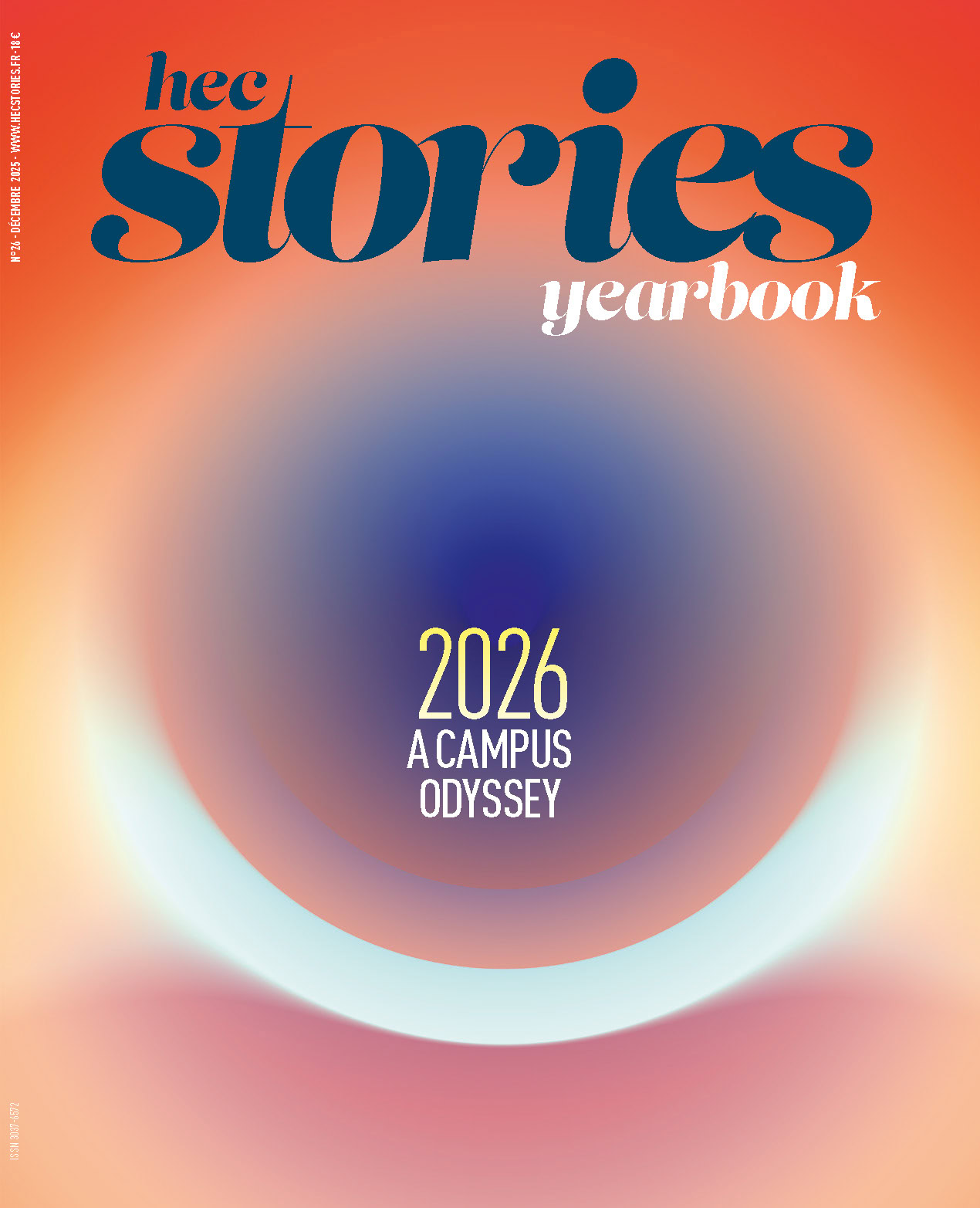How is digitalization driving sustainability in the food industry
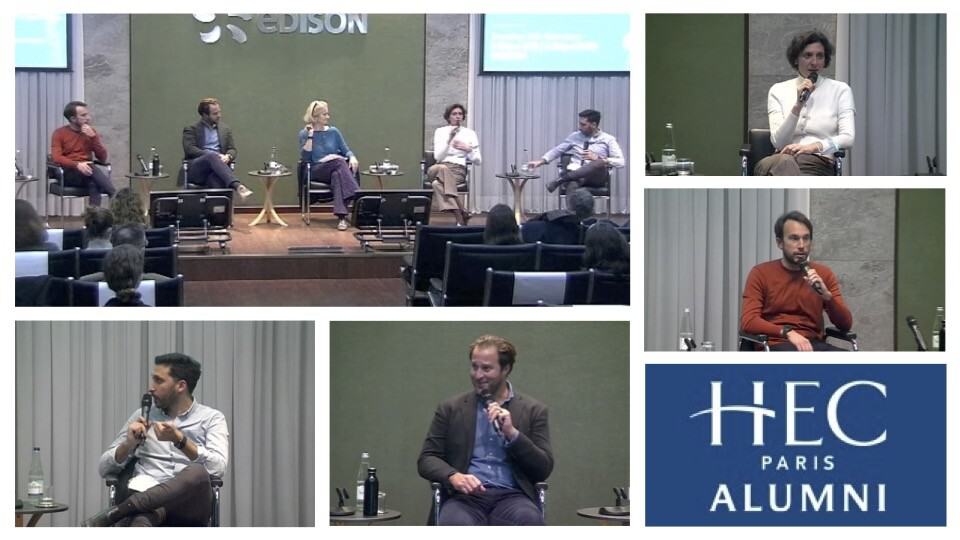
We ran our first HEC Green event in Italy in February, focusing on the impact of technology to improve sustainability in the food industry, in the beautiful Sala degli Azionisti at Edison, Milan. Our panel, 3 Italian start-ups and a large corporate, Sodexo, discussed 2 critical stages for sustainability: farming and food waste reduction.
We are at the beginning of the digital transformation of farming
‘While our daily lives have been transformed by digital tools, farming, at least in Italy, hasn’t changed a lot in the last years. Today, there’s a huge amount of innovation and capital going in this sector’ pointed Daniele Benatoff, co-founder of Planet Farms, Europe’s largest vertical farm situated on the outskirts of Milan.
Vertical farming, which will remain a small piece of the food industry jigsaw, is a great symbol of how technology is helping us get healthy and tasty food without costing the Earth. Vertical farms such as Plant farms allow city dwellers – who want their fresh vine tomatoes all year long -to get access to freshly picked salads and vegetables, without chemicals, and with limited usage of land or water ( up to 95% less ) thanks to controlled environment agriculture. Vertical farms might be futuristic and very far away from the traditional image that consumers have of farmers, and yet it remains true to the Italian food values
‘We have reintroduced pure, untreated ancient seeds. ‘Sapori di una volta’ as Italian love to say. We use the farmers’ ancestral knowledge, but we reintroduce these seeds through innovative technics.’
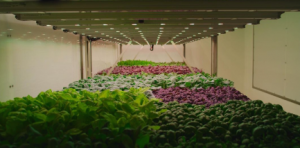
We give access to real-time data to the farming industry
Traditional farms are also benefiting from digitalization. xFarm – an Italo-Swiss Agri tech company – is an all-in-one platform supporting precision farming. The services listed by Matteo Cunial, xFarm’s CRO, range from farm management, IoT technology (sensors,..), satellite imageries to sustainability key data (carbon &water footprint,..). xFarm also provides data to public water management for agriculture. It helps them plan how to move the water supply between regions.
‘Only 6-7% of farms are using precision farming in Europe so there’s a big potential. Our customers are the younger farmers, but we also cooperate with food companies to digitalize their supply chain. Today, they don’t know what is happening in their fields in real-time.’
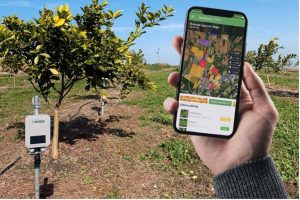 We have examples in Spain, Greece, and even Brazil, where the optimization of infield operations allows to save 50% of water like in Brazilian coffee plantations.
We have examples in Spain, Greece, and even Brazil, where the optimization of infield operations allows to save 50% of water like in Brazilian coffee plantations.
Even in labor-intensive kitchens, technology helps drive behavioral changes
Laura Gibertoni, Communication director and Stop Hunger Ambassador at Sodexo Italy reiterated the importance of reducing food waste. ‘If it was a country, food waste would be the 3rd largest emitter of greenhouse gases. 10% of global population suffers from hunger. We don’t need to produce more food to support food banks, we need to stop wasting it’
Reducing food waste is part of Sodexo’s overall mission, the vision created by its founder, Pierre Bellon (HEC 54): Improving the quality of life of all the people Sodexo serves. For a large company like Sodexo, it means leading concrete actions with communities (gender inclusivity, sustainable business practices) and on the environment (carbon emission and food waste reduction).
Food waste can come from very different sources: lack of speed, mistakes at the preparation stage (not cooking, cleaning, or ordering correctly) or just preparing too much food.
‘Foodservice is highly labor-intensive, and technology is helping us improve our ways of working, even in large scale kitchens – we’re better at collecting data, measuring waste in real-time and understand how to reduce it’.
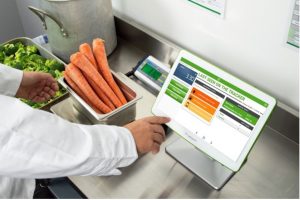 With Sodexo Wastewatchprogram, employees know what is being wasted, when and why. They have put in place new training and ordering procedures leading to 47% waste reduction. The excess food is now systematically sent to charities.
With Sodexo Wastewatchprogram, employees know what is being wasted, when and why. They have put in place new training and ordering procedures leading to 47% waste reduction. The excess food is now systematically sent to charities.
Each player needs a different solution to drive impact
Phenix is a French start-up inventing new solutions for the whole food ecosystem to reach zero waste. Phenix has already saved 150 million meals – that’s 10 million tonnes of products that would’ve ended up in the bin.

‘In reality, we don’t have many reliable data on food waste and we need to understand the need of each of the food chain players to develop the right solutions’ confirmed Julien Fanara, Country manager at Phenix Italy. ‘We help producers sell or find charities for their excess stock. Supermarkets and food services -one of the biggest sources of food waste- need to optimize in-store processes for products close to the expiry date. We valorize their unsold products through food baskets sold to customers through the Phenix app. We are a reliable and easy-to-access source of food for charities. Food waste awareness is now growing among consumers and we help them to play their part.’
What are the next technologies for better farming and reduced waste?
– Electrification of farming, robotics (think Interstellar field robots !), and the interoperability between the different actors.
– Food production will be closer to consumers e.g. Land based aquaculture.
– Better data management, bringing the information and making it accessible to everybody.
– Innovative solutions like Apeel to make fruits and vegetables last longer without using plastic packaging, peer-to-peer food donation.
– Clever fridges from industrial kitchens will extend to food banks and restaurants.
Thanks to Didier Calvez (H.75) Edison CFO for hosting us, our speakers, the HEC Alumni network, and Fabienne Malfait, HEC Italy Chapter president who helped us connect with participants across HEC Italy, UK, Germany, and the HEC Alumni Green network. If you want to help us create new events or share your Green news, please contact vanessa.mayneris@icloud.com at HEC Alumni Italy.
Vanessa Mayneris
Published by La rédaction
